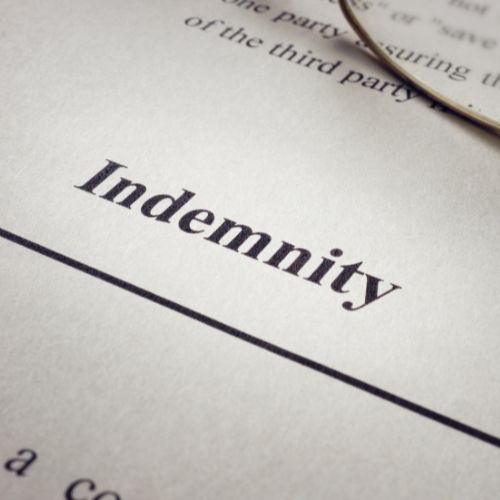Anyone buying a house is familiar with the
principle of caveat emptor, let the buyer beware, which is the rationale behind
the obtaining of surveys to check the condition of the property. The same
principle applies in the purchase of company shares. The purchaser is buying an
entity with all its rights and liabilities. The change of ownership doesn’t
affect these rights and obligations. Accordingly purchasers of shares will seek
to reduce their risks by obtaining extensive warranties and indemnities.
A warranty is a contractual statement and relates
to the state of affairs of the target company. In the event that the warranty
statement proves untrue, which is in effect a breach of the warranty, then the
purchaser will be awarded damages if he proves the breach and the value of the
shares have been reduced as a result of the breach.
Often in any transaction the due diligence process or
the inclusion of extensive warranties in the draft agreement will reveal issues
or flush out matters of concern to the purchaser. The purchaser can then choose
to walk away, negotiate a price reduction or proceed with a specific indemnity
for the matter of concern. An indemnity is a promise to reimburse the purchaser
should a liability arise or a known liability crystallize. It allows the
purchaser to recover his loss on a pound–for–pound basis even if he knew about
the problem prior to buying the shares.
A recent High Court decision in England,
Oversea-Chinese Banking Corp Ltd (“OCBC”) v ING Bank NV, highlighted the lack
of protection for a purchaser where there was no specific indemnity for the
matter of concern and the warranty, whilst breached, did not allow for any
damages. In this case the sale and purchase agreement provided a standard
warranty that the accounts for the Company gave a true and fair view of its
state of affairs at a particular year end. It transpired that a liability had
been wrongly quantified in the accounts. However despite the incorrect
statement of the liability it appeared that the value of the shares would not
have been less even if the liability was correctly stated. This meant that the
purchaser could not recover any damages under the warranty. The purchaser had
accepted this and did not attempt to sue on the warranty, acknowledging the
lack of diminution on the share value. They took the novel approach arguing
that had the liability been correctly stated they would have sought an
indemnity rather than seeking to rely on a warranty.
The judge rejected OCBC’s claim. The hypothetical
indemnity measure was not available to as a matter of law. The judge’s decision
did not depart from the general rule concerning the measure of damages on a
share sale and remained consistent to other Court rulings.
This case highlights the distinction between
warranties and indemnities and the importance to any purchaser of shares in
understanding the different measure of damages and where available obtaining an
indemnity from the Vendor of shares for material matters of concern.
Celia Worthington is a Consultant in the Corporate, Commercial & Charity law
department of Worthingtons Solicitors. For advice on buying or selling
businesses, shareholder disputes or disagreements please telephone our
Commercial Department on 02890279500 or email [email protected]


